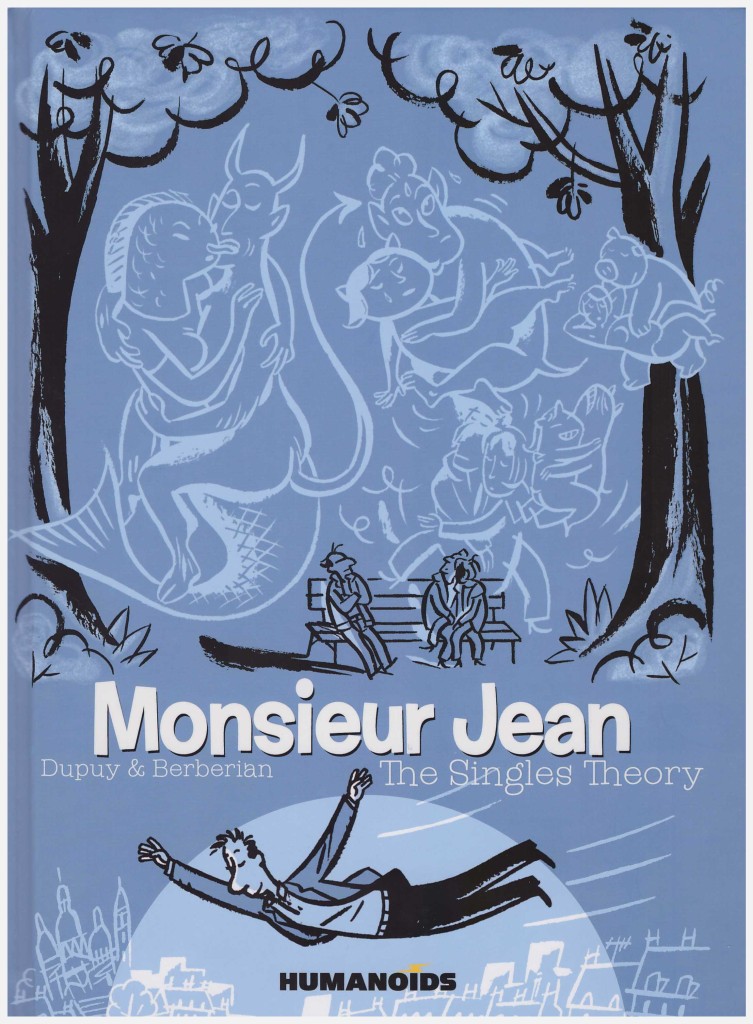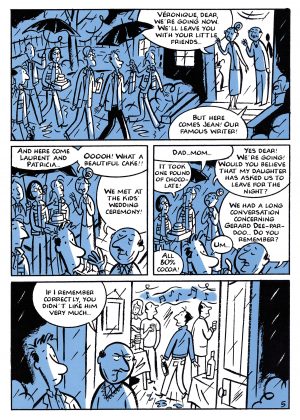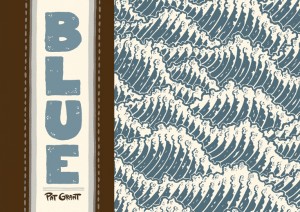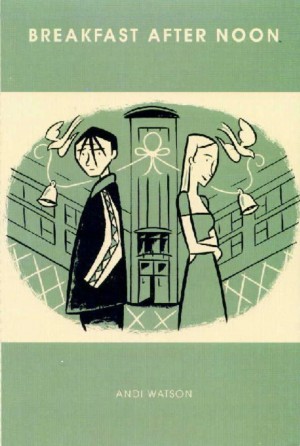Review by Frank Plowright
Philippe Dupuy and Charles Berberian’s Monsieur Jean books are consistently entertaining dramas and exceptionally well presented observational comedy about life in Paris. They began with Jean single and in his late twenties, and as the authors have aged, so has Jean. The Singles Theory was actually a step back into the past, presenting more tales of the earlier days, originally only in black and white, but now with added blue tones.
The removal of colour highlights both the detail and the sketchy quality of their joint art. You can see the squiggles as Jean combs his hair, and the smudges representing leafs and shadows. The pair are masterful when it comes to conveying character, and there’s a full complement of emotional resonance here.
Much of focus is on primary supporting character Felix, Jean’s friend since their teenage years, and at that point staying with him. Felix is the awkward mate we all have, unable to see themselves as largely the author of their own misfortune, prone to foot in mouth disease, dissolute, disorganised and luckless in love. He has his better qualities, though, and there’s a good strip where he stands up for an abused woman, although with disappointing consequences. He’s also somewhat the philosopher, with his ludicrous rant about single people providing the book’s title sequence. The central thesis is that single people, being alone, aren’t attracted by others in that state as they crave a relationship, and therefore focus attention on those who already have one.
The best strip among a positive goldmine is Jean, Felix and others travelling to the countryside for the most wretched party ever. Dupuy and Berberian funnel every bad party experience they’ve ever had into 23 pages of excruciating misery, tension and ill-feeling.
Elsewhere the flights of fantasy to which Jean is prone involve dreams about a trio of assassins that bookend the content, and tie into the theme of writer’s block that weaves in and out of these short stories. Inspiration eventually arrives from a well-conceived source amid a beautifully constructed farce closing the book.
Heavy on charm and hilarity there’s no real indication that The Singles Theory is actually a version of the fill-in issue. If only they were all so good.





